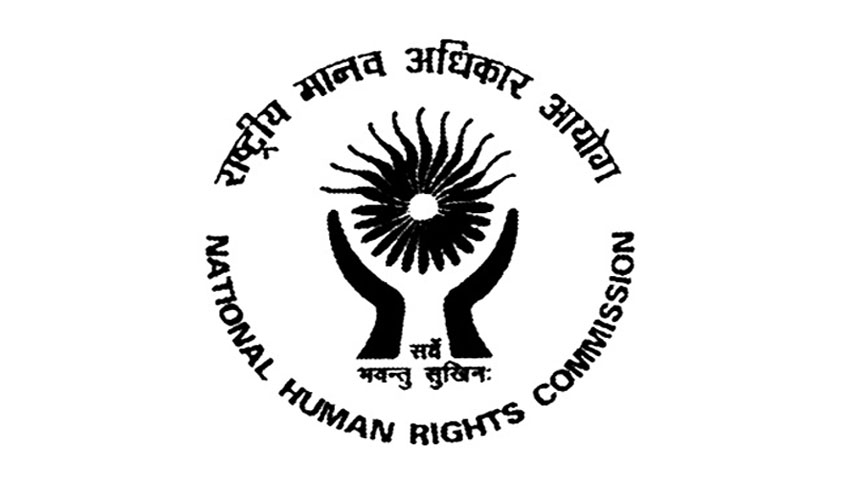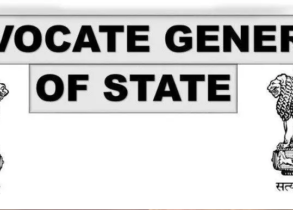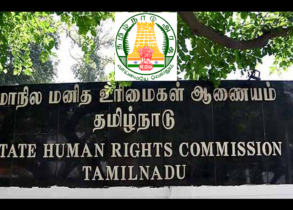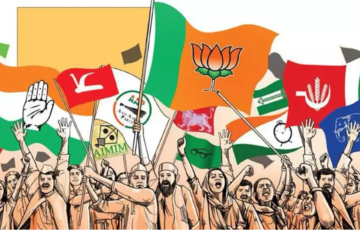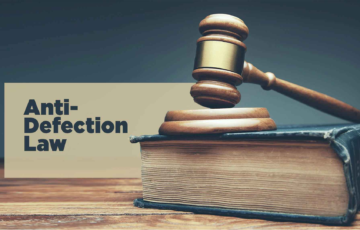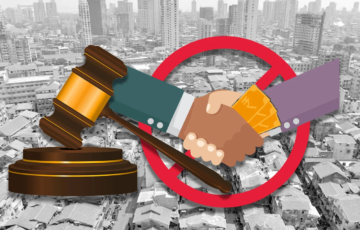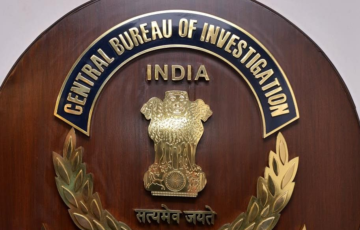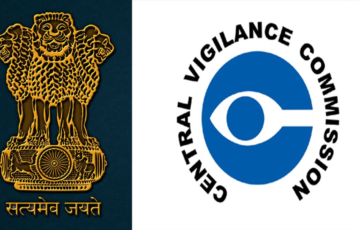NATIONAL HUMAN RIGHTS COMMISSION
What is Human Right?
- Human rights are the basic rights and freedoms that belong to all people in the world, from birth until death. They are universal, meaning they apply to everyone regardless of race, ethnicity, nationality, religion, gender, or sexual orientation. Human rights are also indivisible, meaning that they cannot be separated from one another. For example, the right to life cannot be fully enjoyed without the right to food, water, and shelter.
- The Universal Declaration of Human Rights (UDHR) is the most widely recognized and universally accepted expression of human rights. It sets out 30 articles that define the fundamental rights and freedoms that all people are entitled to. These rights include civil and political rights, economic, social, and cultural rights, and collective rights.
- Human rights are important because they protect the dignity and worth of all human beings. They also help to create a more just and equitable world. When human rights are violated, it can lead to poverty, inequality, and conflict.
- Specific examples of human rights:
- The right to life
- The right to freedom from torture and cruel, inhuman or degrading treatment or punishment
- The right to freedom from slavery and forced labor
- The right to freedom of thought, conscience and religion
- The right to freedom of opinion and expression
- The right to freedom of peaceful assembly and association
- The right to participate in government
- The right to work
- The right to education
- The right to an adequate standard of living
- The right to health
- The right to a clean environment
What is the National human rights commission?
- The National Human Rights Commission (NHRC) of India is an independent statutory body.
- It Established on 12 October 1993 under the Protection of Human Rights Act, 1993.
- It is a national institution for the promotion and protection of human rights in India.
- The NHRC is headquartered in New Delhi and has regional offices in all major cities of India.
- The National Human Rights Commission (NHRC) is the guardian of human rights in India,
- safeguarding the rights to life, liberty, equality, and dignity enshrined in the Indian Constitution and international covenants, and enforceable by Indian courts.
Formation
- Legislative Framework: The NHRC was formed under the Protection of Human Rights Act, 1993. This act was later amended in 2006 to strengthen the commission’s role in safeguarding human rights.
- Date of Establishment: The NHRC was officially set up on October 12, 1993, which is now observed as its foundation day.
- Statutory Body: The NHRC is an independent statutory body, which means it has a legal mandate and authority to investigate and address human rights violations.
- Paris Principles: The establishment of the NHRC was in conformity with the Paris Principles, a set of guidelines adopted for the promotion and protection of human rights. These principles were adopted in Paris in October 1991 and endorsed by the United Nations General Assembly on December 20, 1993.
- Constitution: The National Human Rights Commission (NHRC) is a multi-member body composed of a Chairperson, five full-time Members, and seven deemed Members, To be eligible to become Chairperson, a person must have served as the Chief Justice of India or as a judge of the Supreme Court.
- Appointment: The chairperson and members of the NHRC are appointed by the President of India based on the recommendations of a committee, which includes the Prime Minister, the Speaker of the Lok Sabha, the Deputy Chairman of the Rajya Sabha, leaders of the Opposition in both Houses of Parliament, and the Union Home Minister.
- Tenure: The Chairperson and Members of the NHRC serve for three years, or until they reach the age of 70, whichever comes first.
- The President can remove them from office for specific reasons.
- Removal: The Chairperson and Members of the NHRC can be removed from office only for proven misconduct or incapacity, as determined by a Supreme Court judge in an inquiry.
- Powers and Functions: The NHRC has a range of powers and functions, including the authority to investigate human rights violations, make recommendations, and promote human rights awareness.
Role and Functions of NHRC:
- The NHRC has the same powers as a civil court,
- and its proceedings are considered judicial in nature. The NHRC investigates human rights violations either on its own initiative (suo-moto) or after receiving a petition.
- It also has the power to intervene in any judicial proceedings involving allegations of human rights violations.
- It is granted the authority to seek the assistance of officials or investigative agencies from either the Central or state government to conduct investigations into alleged human rights violations.
- The Commission holds the jurisdiction to investigate incidents that transpired within a one-year timeframe from the date of the alleged violation, and it lacks the capability to probe matters beyond this one-year threshold.
- The core functions of the commission primarily revolve around providing recommendations rather than punitive measures.
- The NHRC is devoid of the power to impose penalties on those responsible for human rights violations, including the ability to offer financial compensation to victims.
- Its role, authority, and scope in cases pertaining to human rights violations by members of the armed forces are circumscribed.
- The NHRC lacks the prerogative to intervene in instances of human rights violations perpetrated by private individuals or entities.
- The Commission is vested with the privilege to inspect correctional facilities and other institutions under the purview of the State Government, evaluating the living conditions of inmates and putting forward suggestions for improvement.
- It has the capacity to evaluate the safeguards prescribed by the constitution or relevant laws for the protection of human rights and to propose appropriate remedial actions.
- The NHRC is engaged in the execution and promotion of research in the field of human rights.
- The NHRC actively strives to raise awareness about human rights and disseminate information regarding the available safeguards for the protection of these rights through various mediums, including publications, media, seminars, and more.
Importance of NHRC:
- To investigate complaints of human rights violations. The NHRC can investigate complaints of human rights violations received from individuals, groups, or organizations. The NHRC can also initiate investigations on its own motion.
- To recommend appropriate remedies to victims of human rights violations. If the NHRC finds that a human rights violation has occurred, it can recommend appropriate remedies to the victim, such as compensation, rehabilitation, or reinstatement.
- To monitor the progress of investigations into human rights violations. The NHRC can monitor the progress of investigations into human rights violations by government agencies and courts.
- To promote awareness of human rights among the public and government officials. The NHRC can promote awareness of human rights through education, training, and research.
- To undertake research on human rights issues. The NHRC can undertake research on human rights issues and publish reports on its findings.
- To advise the government on human rights issues. The NHRC can advise the government on human rights issues and legislation.
The NHRC plays an important role in protecting the human rights of all people in India. It is a watchdog for human rights and a voice for the voiceless.
Here are some specific examples of the NHRC’s work:
- The NHRC has investigated cases of police brutality, custodial deaths, and extrajudicial killings.
- The NHRC has investigated cases of discrimination against women, children, and minorities.
- The NHRC has investigated cases of human rights violations in the context of armed conflict.
- The NHRC has promoted awareness of human rights issues such as the right to education, the right to health, and the right to a clean environment.
- The National Human Rights Commission (NHRC) of India is a valuable institution for the protection and promotion of human rights. However, it does have some limitations.
- NHRC’s recommendations are not binding. This means that the government and other authorities are not legally obligated to implement the NHRC’s recommendations. In some cases, the government has refused to implement the NHRC’s recommendations, or has only partially implemented them.
- NHRC has limited jurisdiction. The NHRC cannot investigate human rights violations committed by armed forces personnel or by private individuals or organizations. This means that a significant number of human rights violations are outside the NHRC’s jurisdiction.
- For example, the NHRC cannot investigate cases of custodial torture and extrajudicial killings by the police, or cases of violence and discrimination against women and children by private individuals.
- NHRC is understaffed and underfunded. This makes it difficult for the NHRC to investigate all of the complaints that it receives and to follow up on its recommendations.
- For example, in 2021, the NHRC received over 1.3 million complaints of human rights violations. However, it was only able to investigate a fraction of these complaints.
Here are a number of reforms that can be made to make the National Human Rights Commission (NHRC) more effective. These include:
- Making the NHRC’s recommendations binding. This would ensure that the government and other authorities are legally obligated to implement the NHRC’s recommendations.
- Expanding the NHRC’s jurisdiction. This would allow the NHRC to investigate all human rights violations, regardless of who committed them.
- Providing the NHRC with more staff and funding. This would enable the NHRC to investigate more complaints and to follow up on its recommendations more effectively.
- Making the NHRC more independent of the government. This could be done by appointing the NHRC’s Chairperson and Members in a more transparent and consultative manner, and by reducing the government’s control over the NHRC’s budget and staffing.
- Strengthening the NHRC’s enforcement mechanisms. This could include giving the NHRC the power to initiate contempt proceedings against individuals or organizations that fail to comply with its recommendations, and to impose financial penalties.
In addition to these specific reforms, it is also important to create a more supportive environment for the NHRC’s work. This means raising awareness of human rights issues, promoting a culture of respect for human rights, and holding the government accountable for its human rights obligations.
The NHRC plays a crucial role in safeguarding and upholding human rights in India, ensuring that individuals’ fundamental rights, as guaranteed by the Indian Constitution and international agreements, are protected and respected.

